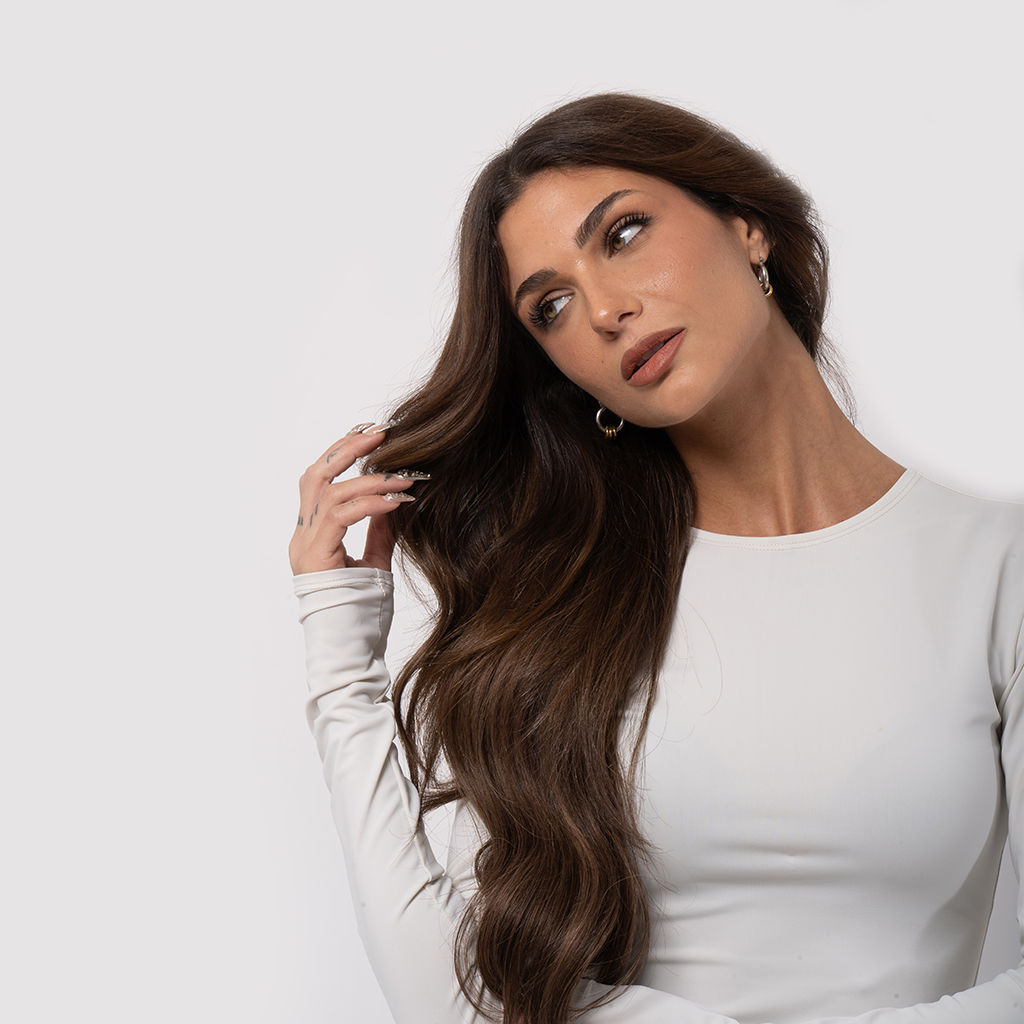
Damage is one of the main reasons why some women avoid hair extensions but do they actually cause as much damage as you think?
If you’re keen on the idea of having Rapunzel-type locks, you’ll know how easy they are to achieve with the help of extensions. However, the one thing that deters many women from creating this look is the idea that extensions will damage their natural hair.
There seems to be a lot of conflicting information about this online but we’re going to set the record straight.
If you like the idea of getting hair extensions but are feeling uncertain, here are a few things to consider.
Maintenance is very important. Women can lose up to 100 strands of their natural hair every day as part of your natural hair shedding cycle. When you have extensions, those strands won’t always be able to fall away naturally. This is why maintenance is so essential – gradually the section of hair that is supporting an extension will lose strength, which is when damage happens. We recommend regular maintenance every 4 – 6 weeks to avoid matting and keep their natural hair healthy.
Use the best products possible. Quality hair extensions are an investment, so it’s essential that you have a good at-home haircare routine in place. Knowing what products to use to benefit your extensions as well as your natural hair will leave you with shiny, healthy locks between appointments. Along with using the right type of shampoo and conditioner, protecting your hair during styling is just as important.
Installation matters. If you’ve recently read some horror stories online about how extensions ended up leaving women with short, damaged hair, know that they probably didn’t share all the facts. When hair extensions are installed badly, it will affect the quality of your natural hair. The stylist that you choose does matter – always look for a specialist extension stylist to ensure you are in the very best of hands.
Clip-In Extensions
Clip-in hair is popular because you can instantly add length, volume and different shades of colour without the commitment. These extensions are very easy to apply and remove but they aren’t ideal for all types of hair. If you already have fine or thin hair, the clips on these extensions can end up damaging your natural hair, so you may want to choose another option.
Tape Extensions
Tape hair extensions are also a very popular choice and are ideal for almost every type of hair. They are very light and don’t require any heat or additional chemicals to apply. When shopping around for extensions, know that tape and glue-in hair extensions are not one and the same. There is a very high chance that glue-in extensions will damage your natural hair, mainly if they’re not removed correctly. Tape hair extensions, on the other hand, are much easier to remove. You simply need to apply a remover liquid to the bonds and gently rub it in until they loosen.
Sew-In Extensions
Sew-in hair extensions are best suited to thicker, coarse hair and result in no damage, provided they are installed by a professional. To install the extensions, the hair is braided and the wefts are sewn into the braids. To remove, the threads simply need to be cut, which won’t affect your natural hair at all.

The primary reason why some women walk away from hair extensions with a sour taste in their mouths is because of the person who installed them. Hair extensions are designed to gently blend in with your natural locks. When you start this journey, your two most important decisions are going to be the type of hair extension that you choose as well as who will be installing them.
You should never experience pain during your appointment and you certainly shouldn’t walk away with discomfort because the extensions are pulling. A professional stylist should be able to guide you through the process of purchasing the right extensions and help you install them in a way that feels and looks good.
Deciding to install your own hair extensions is another way that your natural hair can end up damaged. Unless you have extensive experience with hair extensions, it’s best to get a professional to assist you. If your home installation goes wrong, you’re going to end up paying for professional help anyway – rather do it right the first time.
Hopefully, we have cleared up one of the biggest myths surrounding hair extensions for you.
